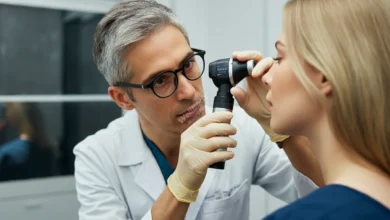When Should You Start Regular Prostate Screenings?

Did you know that 1 in 8 men will be diagnosed with prostate cancer in their lifetime? This startling statistic highlights why prostate health is crucial for every man. Regular screenings play a key role in catching issues early. But when should you start these check-ups?
Let’s dive into the world of prostate health and find out when you should begin your screening journey.
Understanding Prostate Health
What is the prostate?
The prostate is a small gland in men. It’s about the size of a walnut. This tiny powerhouse sits below the bladder and in front of the rectum. Its main job? To make fluid that protects and feeds sperm.

Common prostate issues
Men can face several prostate problems. Here are the main ones to watch out for:
- Benign Prostatic Hyperplasia (BPH): This is when the prostate grows bigger. It’s not cancer, but it can cause trouble peeing.
- Prostatitis: This means the prostate is inflamed or infected. It can cause pain and urinary problems.
- Prostate Cancer: This is when harmful cells grow in the prostate. It’s the most serious prostate issue.
These problems show why keeping an eye on your prostate is so important. Regular check-ups can catch these issues early.
Importance of Prostate Screenings
Early detection benefits
Regular prostate screenings can be a real lifesaver. Here’s why they’re so important:
- Catch problems early: The sooner you find an issue, the better your chances of beating it.
- More treatment options: Early detection often means more choices for treatment.
- Higher survival rates: For cancer, early discovery can mean the difference between life and death.
- Peace of mind: Knowing your prostate health status can ease worry and stress.
Types of prostate screenings
There are two main tests doctors use to check your prostate health:
- Digital Rectal Exam (DRE)
This quick test involves your doctor feeling your prostate through the rectum. It might feel awkward, but it’s fast and can find lumps or odd shapes. - Prostate-Specific Antigen (PSA) test
This blood test checks for a protein made by the prostate. High levels might mean there’s a problem, but not always cancer.
When to Start Regular Prostate Screenings
General guidelines
When should you start getting checked? Here’s a simple guide:
| Age Group | Recommended Screening Frequency |
|---|---|
| Under 40 | Usually not needed unless high risk |
| 40-54 | Discuss with doctor if high risk |
| 55-69 | Every 1-2 years |
| 70+ | Based on overall health and discussion with doctor |
Risk factors that may influence screening age
Some men might need to start screenings earlier. You might be at higher risk if you have:
- Family history: Dad or brother had prostate cancer
- Race: African American men are at higher risk
- Lifestyle factors: Poor diet, lack of exercise, smoking
Discussing with your doctor
Your doctor is your best friend in this journey. They can give advice based on your specific situation. Here are some questions to ask:
- When should I start screenings based on my risk factors?
- What tests do you recommend for me?
- How often should I get screened?
- What are the pros and cons of screening in my case?
Remember, open communication with your healthcare provider is key to making the best choices for your health.
Prostate Screening Process
What to expect during a screening
Knowing what’s coming can ease your mind. Here’s what happens during typical prostate screenings:
Digital Rectal Exam (DRE):
- You’ll be asked to bend over or lie on your side.
- The doctor will gently insert a gloved, lubricated finger into your rectum.
- They’ll feel the prostate for size, texture, and any lumps.
- It’s quick, usually taking less than a minute.
Prostate-Specific Antigen (PSA) test:
- This is a simple blood test.
- A small needle is used to draw blood from your arm.
- The sample is sent to a lab for analysis.
- Results usually come back within a few days.

Interpreting results
Understanding your test results is crucial:
- DRE results are based on what the doctor feels. They’ll tell you if they found anything unusual.
- PSA levels are trickier to interpret:
- Generally, PSA levels under 4 ng/mL are considered normal.
- Levels between 4 and 10 might mean more tests are needed.
- Levels above 10 often suggest a higher risk of cancer.
But remember: PSA levels can be affected by many factors. Higher levels don’t always mean cancer. That’s why professional interpretation is key.
Maintaining Prostate Health
Lifestyle factors
You can boost your prostate health with some simple lifestyle changes:
Diet recommendations:
- Eat more fruits and vegetables
- Choose whole grains over refined grains
- Limit red meat and processed foods
- Include healthy fats like olive oil and avocados
- Stay hydrated with plenty of water

Exercise benefits:
Regular physical activity can help maintain a healthy prostate. Aim for at least 30 minutes of exercise most days. This could include:
- Brisk walking
- Swimming
- Cycling
- Strength training
Regular check-ups
Consistency is key when it comes to prostate health. Make screening a regular part of your health routine:
- Mark your calendar for annual check-ups.
- Don’t skip appointments, even if you feel fine.
- Keep a record of your screening results.
- Discuss any changes or concerns with your doctor promptly.
By staying on top of your screenings and making healthy choices, you’re taking important steps to protect your prostate health.
Conclusion
Prostate health is a vital part of every man’s well-being. Regular screenings are your best defense against serious prostate issues, including cancer. Let’s recap the key points:
- Prostate screenings can catch problems early, leading to better outcomes.
- Most men should start regular screenings between ages 55 and 69.
- Risk factors like family history or race might mean starting earlier.
- Two main tests – the DRE and PSA – are quick and can save lives.
- Healthy lifestyle choices can support good prostate health.
Remember, your health is in your hands. Don’t wait for symptoms to show up before you act. Take charge of your prostate health today:
- Talk to your doctor about when you should start screenings.
- Schedule your first or next screening if you’re due.
- Make those healthy lifestyle changes we discussed.
Early detection is key. By staying proactive, you’re not just looking after your prostate – you’re investing in a healthier, happier future.
Additional Resources
Want to learn more about prostate health and screenings? Check out these trusted sources:
- American Cancer Society: Prostate Cancer Early Detection
- Prostate Cancer Foundation: About the Prostate
- National Cancer Institute: Prostate-Specific Antigen (PSA) Test
Your prostate health matters. Stay informed, stay screened, and stay healthy!



